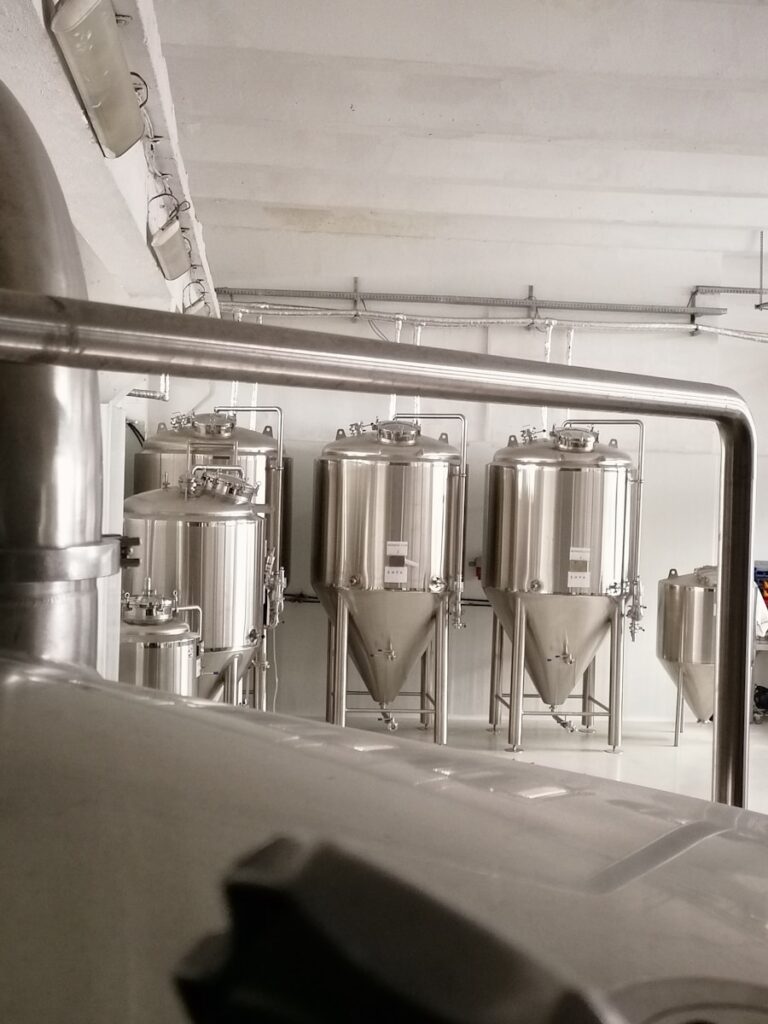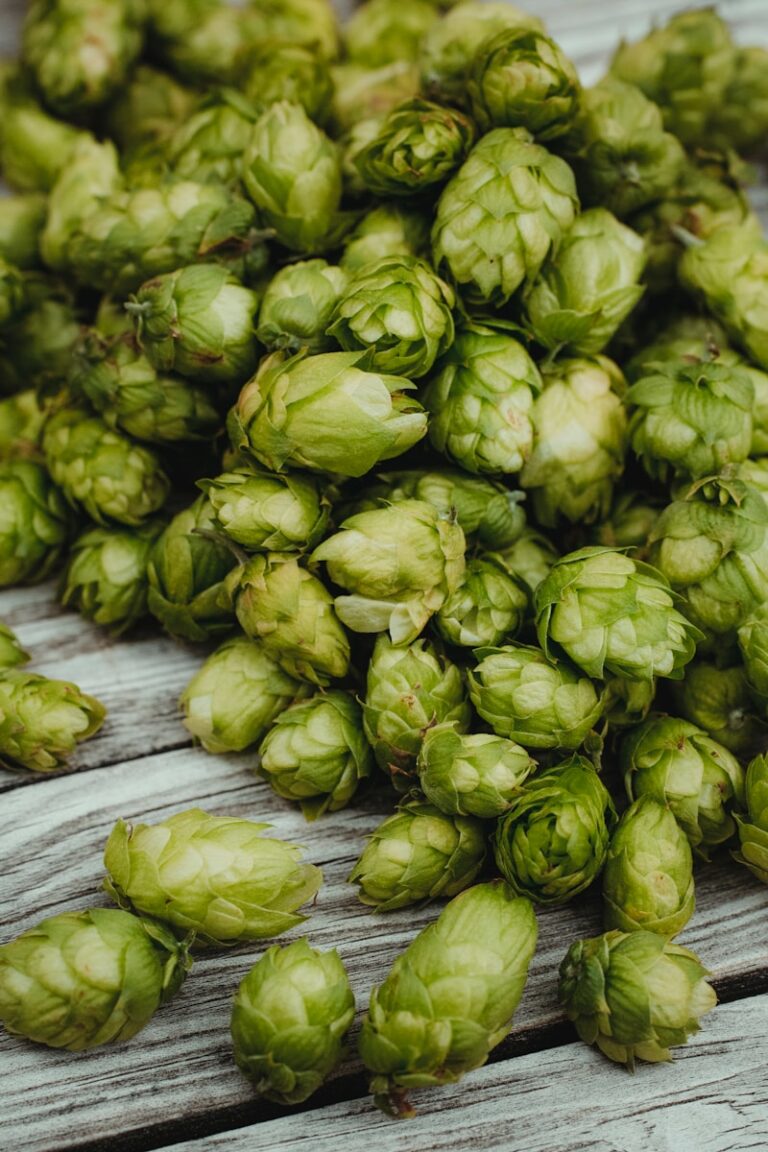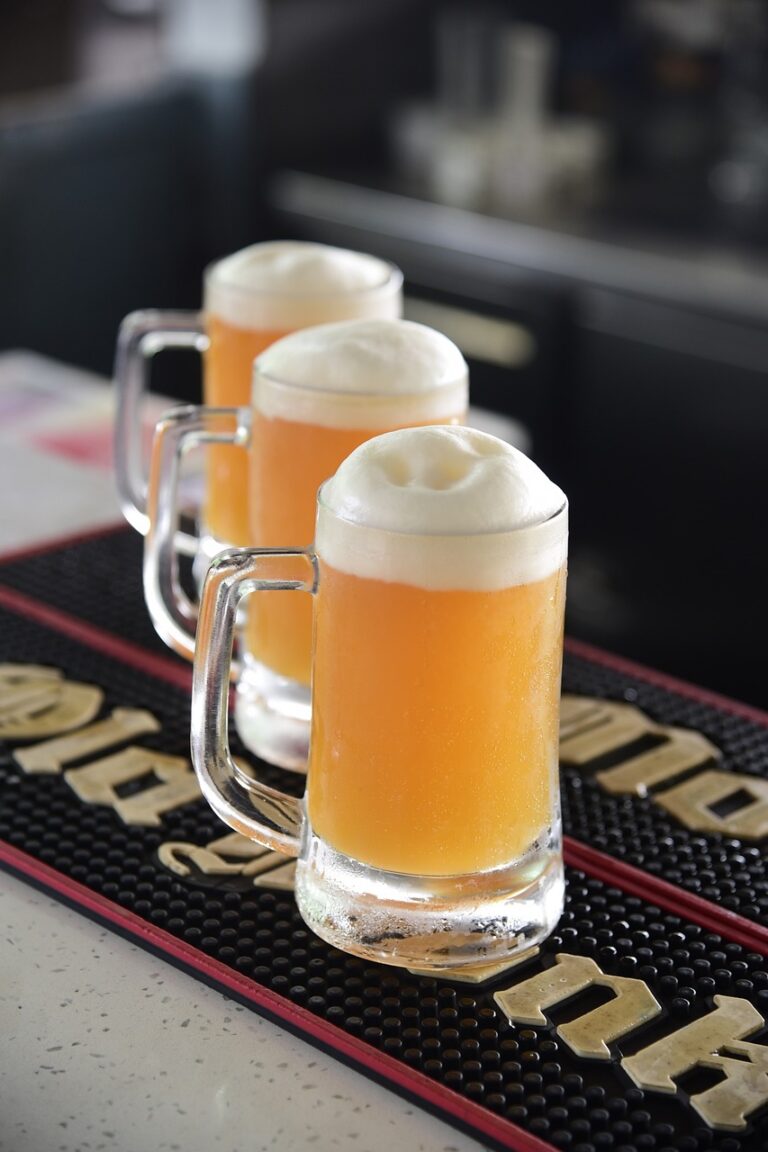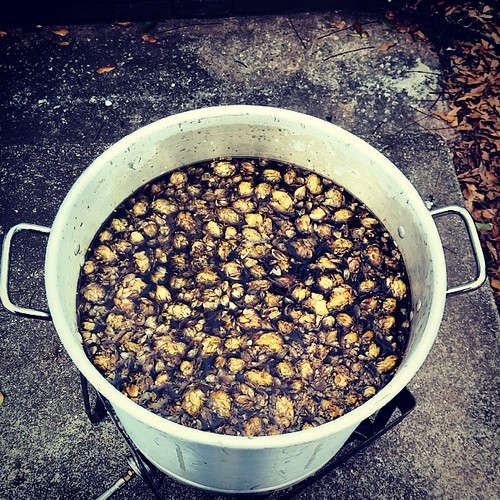When most people think about sustainability in brewing, recycling cans and bottles usually comes to mind first. But at Green Earth Brewing Co., we’ve always believed that true sustainability means looking beyond the obvious. Every day, we’re finding innovative ways to give our brewing materials second lives – from the grains that start our process to the last drop of water we use. What began as simple experiments in waste reduction has blossomed into a comprehensive system of creative reuse that’s not only good for the environment but has strengthened our community connections in unexpected ways. Here’s a behind-the-scenes look at how we’re turning would-be waste into valuable resources, one brew at a time.

From Grain to Garden: Our Spent Malt’s Second Life
Every batch of craft beer we brew at Green Earth starts with quality malted grains. But what happens to these grains after they’ve worked their magic in our mash tun? Instead of sending hundreds of pounds of spent grain to the landfill each week, we’ve created a vibrant “grain-to-garden” program that keeps these nutrient-rich materials working hard for our community.
Here’s the thing about spent brewing grains – they’re packed with protein, fiber, and minerals that plants and animals love. We’ve partnered with five local farms within a 20-mile radius of our brewery, including River Ridge Farm and Happy Acres Dairy, who collect our spent grains weekly. These partnerships have helped us divert over 50,000 pounds of grain from landfills in the past year alone.
But our spent grains don’t just feed livestock. We’ve developed a robust composting program that transforms a portion of our used grains into rich, organic fertilizer. Every Sunday, local gardeners can pick up free compost from our “Brewer’s Gold” pile behind the taproom. The results? Our customers are growing everything from heirloom tomatoes to hop plants using nutrients that started in our brew kettle.
Want to try composting with spent grains at home? Here are our brewmaster’s top tips:
- Mix spent grains with equal parts dry leaves or straw to balance moisture
- Keep your pile small at first – a 3:1 ratio of regular compost to spent grain
- Turn the pile weekly to prevent clumping and encourage decomposition
- Use within 6 months for best results
Through these initiatives, we’re not just making great beer – we’re cultivating a more sustainable community one grain at a time. Next time you enjoy a pint at our taproom, remember: those grains might be helping grow your next salad or feeding the cows that produce your local cheese.
Hop Heads Up: Unexpected Uses for Used Hops
If you’ve ever walked through our brewery during a fresh hop addition, you know that magical aroma that fills the air. While these fragrant flowers are essential for creating our signature brews, we’ve discovered that their usefulness doesn’t end when the beer is done. Our spent hops have found surprising second lives in ways that might inspire your own sustainability journey.
First up: natural pest control. Those same compounds that give hops their preservative qualities in beer make them excellent garden defenders. We provide our spent hops to local community gardens, where they’re used to deter common pests like slugs and snails. Mixed into mulch or compost, these hop remnants help protect vegetables naturally, without the need for chemical pesticides. Last season, the Washington Street Community Garden reported a 40% reduction in pest damage after incorporating our hop mulch.
But perhaps our most innovative hop reuse project is our partnership with Local Roots Soap Company. Those citrusy, earthy aromatics that make our IPAs so distinctive are now finding their way into handcrafted soaps and bath products. The natural antibacterial properties of hops make them perfect for personal care items, and we’re proud to say that every bar of their “Brewers’ Clean” soap contains hops from our brewery.
Ready to put spent hops to work in your own space? Try these tested techniques:
- Create a pest barrier by spreading dried spent hops around garden beds
- Add hop material to your compost bin (use about 5% of total volume)
- Make a natural air freshener by drying and bundling spent hops
- Contact local soap makers or crafters who might want to experiment with spent hops
Remember: when using spent hops in gardens, avoid areas where dogs might have access – hops can be harmful to our four-legged friends. Through these creative reuse programs, we’re showing that sustainability can smell great and solve problems at the same time.
Water Wise: How We’re Closing the Loop
Let’s talk about brewing’s biggest resource: water. The traditional brewing process can use up to seven gallons of water to produce just one gallon of beer. At Green Earth Brewing Co., we’ve made it our mission to dramatically reduce that ratio through innovative water recycling systems that are changing the game for sustainable brewing.
Our closed-loop water system, installed in 2022, has revolutionized how we think about water usage. The process starts with capturing and filtering the water used in our cooling systems – historically a major source of waste in brewing. This reclaimed water now cycles back through our cleaning processes, where it’s used to wash tanks and equipment. Through this system alone, we’ve reduced our fresh water consumption by 40% compared to traditional brewing methods.
But we didn’t stop there. Working with local engineering firm EcoFlow Solutions, we’ve implemented a state-of-the-art wastewater treatment system that purifies our process water for landscape irrigation. Our brewery’s drought-resistant garden, which provides herbs for our seasonal brews, is now entirely maintained with treated brewing water. The numbers tell the story: we’re saving approximately 300,000 gallons of fresh water annually.
Here’s how our water conservation system breaks down:
- Initial brewing water is sourced from local wells
- Cooling water is captured, filtered, and reused for cleaning
- Cleaning water is treated and used for irrigation
- Rainwater collection supplements our water supply
- Regular water quality testing ensures safety at every step
The best part? We’re sharing what we’ve learned. Every quarter, we host “Water Wise Workshops” for other craft brewers and homebrewers, spreading sustainable practices throughout our industry. Because when it comes to protecting our most precious resource, we believe a rising tide lifts all boats – or in our case, all beers.
Want to learn more about our water conservation efforts? Join us for a brewery tour every Saturday at 2 PM, where you can see our systems in action and taste the difference sustainable brewing makes. After all, better water practices make for better beer, and that’s something we can all raise a glass to.
Brewing a Better Future
At Green Earth Brewing Co., we believe that every material that passes through our brewery deserves careful consideration for its full potential. Through our grain-to-garden program, innovative hop reuse initiatives, and comprehensive water conservation systems, we’re proving that sustainable brewing is not just an idealistic goal – it’s a practical reality that benefits everyone.
These programs have not only reduced our environmental impact but have created a ripple effect throughout our community. From local farmers to home gardeners, soap artisans to fellow brewers, our reuse initiatives have fostered partnerships that extend well beyond the walls of our brewery. In the past year alone, we’ve diverted over 50,000 pounds of grain from landfills, saved 300,000 gallons of water, and inspired countless others to rethink their approach to waste.
Want to be part of our sustainability story? Stop by our taproom to learn more about our initiatives, join one of our weekly workshops, or pick up some spent grains for your garden. Because at Green Earth Brewing Co., every pint you enjoy is part of a larger mission to brew a better, more sustainable future for all. Cheers to that!






